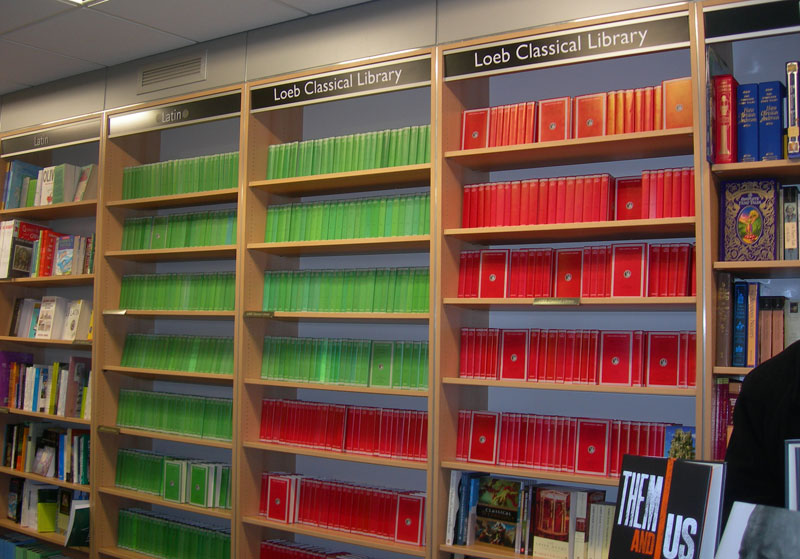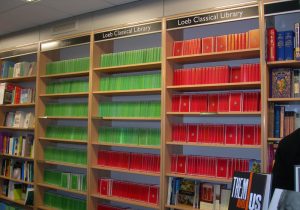Many occultists follow or develop practices from predecessors who may have lived decades, maybe centuries, maybe millenia in the past. In fact a goodly amount of what is consider “magick” these days was considered religious or medical or scientific and was written about and studied openly. So it’s entirely possible that many of us will find useful resources in the Loeb Classical online library, a massive trove of ancient literature.
Here’s a few words from the library’s general editor:
“Over a century ago, James Loeb announced the founding of the Loeb Classical Library and his intention to bring the written treasures of the ancient Greek and Roman world “within the reach of all who care for the finer things in life.” Now it gives us great pleasure to welcome you – old friends and newcomers, scholars, students, and general readers alike – to the digital Loeb Classical Library, and to invite you to enjoy its Greek and Latin texts alongside English translations, in the familiar ways and in surprisingly new ones.
“Every work is classified by language, form, genre, subject, and date, making both navigation and browsing for unexplored treasures far easier than facing all those volumes on the bookshelf. Are you looking for a person or place, a quotation about love or wealth, or how a particular word has been translated in a work, by an author, or across the entire Library? You will find it quite easily, for every word of the Greek, Latin, and English is fully searchable. And whatever you find in the Library can be saved and organized as you like in your own digital workspace. You can even share your bookmarks and notes with other users, such as colleagues, students, classmates, and friends.
“The digital debut of the Loeb Classical Library prompts reflection on the foundational durability and adaptability of the works it contains. Over the millennia these works have adapted to new vehicles and systems of reference and organization, as they attracted new generations of readers, imitators, scholars, students, collectors, and connoisseurs. This new digital medium is but the latest of many media to have carried these works. The Greek oral tradition (Homer’s “winged words”) began to be captured in writing around the eighth century BCE. It was committed first to the handwritten (sc)roll, then the handwritten codex with its pages (early first century CE), then the printed codex (around the middle of the fifteenth century), and now in the twenty-first century to the computer, tablet, and smart phone, with surely more media to come. With each new medium have come unanticipated effects as writers and readers explored its new capabilities and discovered its potential. And so it will be with the Loeb Classical Library in its new digital form.
“James Loeb specified the size of his iconic volumes with a view to easy portability. He wanted each volume to fit easily inside a coat pocket. Loeb might have been delighted to know that in the second century of its existence, the entire Library – in its new digital incarnation – can fit inside a coat pocket. I look forward to joining you in exploring this newest version of James Loeb’s legacy. I remain convinced that the full potential of the digital medium is yet to be discovered. I look forward to meeting new readers and friends of the Loebs in the coming years. I imagine these readers perusing the entire Library in a college dormitory or in an office in a small town or in a café in a bustling city halfway around the world. Meanwhile the print Library will continue to serve the purposes best served by the codex, of which the Loeb volumes have long been a beautiful and exceptional variety.”
Have a look:


